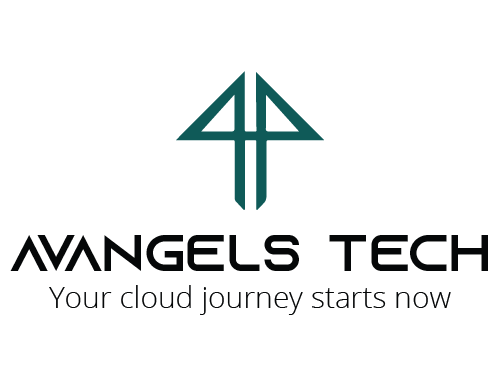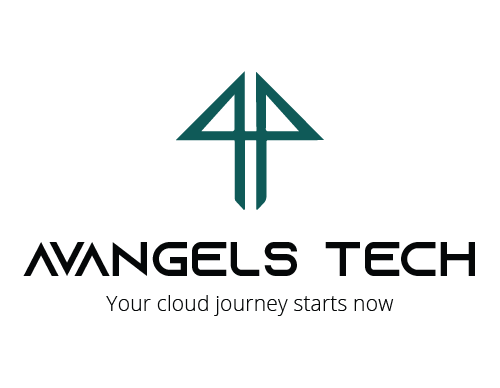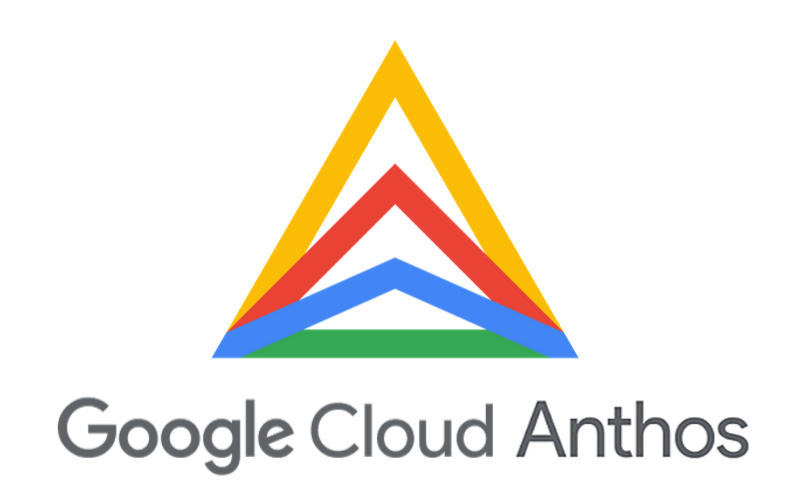Google Cloud Anthos
Unleashing the Power of Hybrid and Multi-Cloud Environments
This series of blogs looks at some of the most popular and commonly used services on the Google Cloud Platform. In this blog, we look at Google Cloud Anthos.
Additional Reading
For more official documentation on “Google Cloud Anthos”, please visit the official Google Cloud website.
For detailed documentation on “Google Cloud Anthos Technical Overview”, please visit the official Google Cloud website.
To get a deeper understanding of “Google Kubernetes Engine”, click the attached link.
To get more information on “Google Big Query”, click the attached link.
To get more information on “Google Cloud Functions”, click the attached link.
To get more information on “Google Cloud AI”, click the attached link.
Introduction
In a world where digital transformation is no longer a choice but a necessity, businesses are constantly looking for ways to streamline their operations, reduce costs, enhance their agility, and ensure the highest level of security. The cloud has been a game-changer in this regard, offering scalability and flexibility like never before. Google Cloud Anthos, a groundbreaking hybrid and multi-cloud platform, is at the forefront of this revolution.
Businesses are increasingly embracing cloud technologies to enhance their operations, improve scalability, and foster innovation. However, the journey to the cloud is not one-size-fits-all. Enterprises often find themselves in a hybrid or multi-cloud environment, utilizing a mix of on-premises infrastructure and multiple cloud providers. Managing and orchestrating applications across these diverse environments can be complex, challenging, and time-consuming. Enter Google Cloud Anthos, a revolutionary platform that simplifies the management of applications in hybrid and multi-cloud environments.
In this blog post, we’ll explore the wonders of Google Cloud Anthos, understanding its features, benefits, and how it is transforming the way businesses deploy and manage their applications.
What is Google Cloud Anthos?
Google Cloud Anthos is a modern application management platform that enables organizations to build, deploy, and manage applications across various environments, including on-premises data centres, Google Cloud Platform (GCP), and other public clouds such as Amazon Web Services (AWS) and Azure. It provides a consistent and unified platform for managing containerized applications using Kubernetes, the popular open-source container orchestration system. Whether your applications are running on-premises, in Google Cloud, or on other clouds, Anthos provides a consistent and unified management experience.
Google Cloud Anthos is a Kubernetes-based platform that allows organizations to build, manage, and scale applications securely across different environments, be it on-premises, in the cloud, or even across multiple cloud providers. It’s designed to help businesses break down silos, modernize their applications, and accelerate their digital transformation journey. It is built on open-source technologies like Kubernetes, Istio, and Knative, providing consistent development and operations experience across different infrastructures.
How Google Cloud Anthos Works?
Google Cloud Anthos leverages Kubernetes as its foundational technology. Kubernetes is an open-source container orchestration platform that automates the deployment, scaling, and management of containerized applications. Anthos extends the capabilities of Kubernetes to work seamlessly across various cloud and on-premises environments. It also provides a centralized control plane to manage and monitor applications, regardless of their location.
Here’s a simplified breakdown of how Anthos works:
1. Containerization: Anthos containers encapsulate applications and their dependencies. This ensures that applications can run consistently across different environments.
2. Orchestration: Kubernetes orchestrates the deployment and scaling of containers. Anthos integrates Kubernetes into a unified platform, allowing you to manage all your clusters from a single dashboard.
3. Connectivity and Service Mesh: Anthos Service Mesh enables secure and efficient communication between services across different environments, improving network visibility and security.
4. Security and Policy Management: Anthos provides robust security features, such as role-based access control (RBAC), encryption, and compliance management.
Key Features of Google Cloud Anthos
1. Multi-Cloud and Hybrid Deployment: Anthos allows businesses to run applications on existing on-premises hardware while also providing the flexibility to deploy and manage applications across different cloud providers, including Google Cloud, AWS, and Azure. This multi-cloud and hybrid capability provides unmatched flexibility and helps in avoiding vendor lock-in. This freedom of choice empowers organizations to select the best environment for each specific workload, optimizing costs and performance.
2. Kubernetes Native: Built on Kubernetes, the open-source container orchestration platform, Anthos simplifies the deployment and scaling of containerized applications. Kubernetes ensures that applications run consistently across environments, making it easier for developers to focus on writing code rather than worrying about the underlying infrastructure.
3. Modern Application Development: Anthos supports modern application development practices such as containers and microservices. It is built on Kubernetes, which enables developers to build, deploy, and scale applications seamlessly. It supports modern containerization techniques, allowing businesses to containerize their legacy applications and benefit from the scalability and portability offered by containers. By embracing containerization, Anthos promotes agility, making it easier to develop, test, and deploy applications across various environments.
4. Security and Compliance: Security is paramount in Anthos. Anthos provides robust security features, including identity and access management, encryption, and automated patching, ensuring that applications and data are secure across all environments. It also helps businesses adhere to regulatory compliance requirements, making it a preferred choice for industries with strict compliance standards. Plus, you can use Google’s managed hardware security modules (HSMs) for sensitive data protection. This also helps in maintaining compliance with industry standards and regulations.
5. Observability and Management: Anthos offers powerful tools for monitoring, logging, and tracing applications. With integrated solutions like Google Cloud’s Operations Suite, businesses can gain deep insights into the performance of their applications, identify issues quickly, and optimize their infrastructure for maximum efficiency.
6. Consistent Management: With Anthos, you can manage your applications and workloads consistently across all your environments, whether they’re on-premises or in the cloud. This consistency simplifies operations, improves security, and makes it easier to move workloads between environments. With Anthos, developers can build applications using familiar tools and deploy them consistently across various environments. Operations teams can manage applications efficiently with unified policies and monitoring capabilities.
7. Visibility and Monitoring: Anthos provides tools for monitoring, logging, and diagnostics. It integrates with Google’s Cloud Operations suite, which makes it easier to keep an eye on the health and performance of your applications, allowing IT teams to gain valuable insights into application performance, troubleshoot issues, and optimize resources effectively.
8. Scalability and Efficiency: Thanks to its container-based approach, Anthos enables auto-scaling and automatic resource provisioning, helping you optimize resource utilization and reduce costs.
9. Automated Operations: Anthos automates various aspects of application management, allowing for efficient scaling based on demand. It automates tasks such as updates, scaling, and load balancing, reducing the operational overhead for IT teams, and enabling them to focus on innovation.
10. Integration with Google Services: Anthos seamlessly integrates with various Google Cloud services, including BigQuery, AI Platform, and Cloud Functions, allowing businesses to leverage advanced analytics and machine learning capabilities.
11. Anthos Service Mesh: Anthos Service Mesh is an integral part of Anthos, providing a unified way to connect, manage, and secure microservices-based applications. It offers features like traffic management, policy enforcement, and telemetry, enhancing the overall observability and reliability of applications.
12. Unified Management: Anthos provides a single pane of glass for managing applications across different environments, simplifying complex multi-cloud and hybrid setups.
13. Serverless Computing: Anthos supports serverless workloads, enabling developers to focus on writing code without worrying about the underlying infrastructure.
14. Flexibility and Choice: Anthos gives businesses the freedom to choose the best environment for their applications, whether it’s on-premises or in the cloud. This flexibility enables organizations to avoid vendor lock-in and adapt to changing business needs seamlessly.
Benefits of Google Cloud Anthos
1. Accelerated Innovation: By providing a consistent platform across environments, Anthos accelerates the development and deployment of applications. Developers can focus on writing code, knowing that Anthos will handle the complexity of managing applications in diverse environments. By automating operational tasks, Anthos frees up valuable time and resources, allowing organizations to focus on innovating their applications and services, thereby gaining a competitive edge in the market.
2. Cost Optimization: Anthos optimizes infrastructure usage and resource allocation, helping organizations make the most out of their cloud investments. By optimizing resource utilization and automating operations, Anthos helps businesses reduce costs associated with managing complex IT infrastructures. Anthos offers cost advantages by optimizing resource utilization and enabling businesses to avoid vendor lock-in. It allows organizations to move workloads between different environments based on cost, performance, and other factors. This flexibility ensures that businesses can make data-driven decisions to minimize expenses and maximize ROI.
3. Enhanced Security: Anthos’ consistent security policies and encryption mechanisms ensure that applications and data remain secure, regardless of the underlying infrastructure, giving businesses peace of mind in today’s cybersecurity landscape. Anthos offers robust security features, ensuring end-to-end encryption, secure identity management, and compliance with industry regulations, bolstering the security posture of applications and data.
4. Simplified Operations: Anthos simplifies the management of complex, multi-cloud environments. With centralized control and monitoring, IT teams can streamline operations, troubleshoot issues faster, and ensure the reliability of applications. With centralized management and automation, Anthos simplifies complex tasks, reduces manual intervention, and enhances operational efficiency, saving time and resources.
5. Enhanced Productivity: By streamlining the deployment and management of applications, Anthos allows development teams to focus on innovation and writing code rather than managing infrastructure. This boost in productivity accelerates the development and deployment cycles. Developers can focus on writing code and building features, rather than dealing with the complexities of different deployment environments, leading to increased productivity and faster time-to-market.
6. Scalability: Anthos scales seamlessly to meet the growing demands of your business, allowing you to expand your infrastructure without significant overheads.
Use Cases for Google Cloud Anthos
1. Hybrid Cloud Deployment: If you have on-premises infrastructure but want to leverage the scalability and features of the cloud, Anthos can help you manage and modernize your applications across both environments.
2. Multi-Cloud Strategy: For organizations looking to avoid vendor lock-in, Anthos enables the deployment of applications on multiple cloud providers while maintaining consistent management.
3. Application Modernization: Businesses with legacy applications can containerize and modernize them with Anthos, making them more scalable, efficient, and cost-effective.
4. Microservices Architecture: Anthos is well-suited for microservices-based applications, providing the necessary tools for management, scaling, and security.
5. Retail: Retailers can use Anthos to modernize their e-commerce platforms, ensuring seamless customer experiences across various channels while optimizing costs through hybrid cloud deployments.
6. Finance: Financial institutions can leverage Anthos to build secure and compliant applications for online banking, payment processing, and customer service, all while maintaining control over their sensitive data.
7. Healthcare: Healthcare providers can utilize Anthos to develop and deploy healthcare applications securely, ensuring compliance with healthcare regulations and protecting patient data in multi-cloud environments.
Conclusion
Google Cloud Anthos empowers businesses with the tools and capabilities needed to thrive in the dynamic world of hybrid and multi-cloud environments. Its seamless integration, enhanced security, and operational efficiency make it a compelling choice for organizations aiming to modernize their applications and infrastructure. As businesses continue to embrace digital transformation, Anthos stands as a beacon, guiding them toward a future where innovation knows no bounds and where the hybrid cloud becomes a seamless extension of their capabilities. Embrace the power of Anthos, and unlock a world of limitless possibilities for your organization.
In a digital landscape characterized by complexity and change, Google Cloud Anthos stands out as a beacon of simplicity and innovation. By providing a unified platform for managing applications across hybrid and multi-cloud environments, Anthos empowers organizations to focus on what matters most: driving business value through technology. As businesses continue to evolve, Anthos will undoubtedly play a pivotal role in shaping the future of application deployment and management. Embracing Anthos is not just a technological decision; it is a strategic move that can propel businesses into a future where adaptability and efficiency are paramount.
In conclusion, Google Cloud Anthos empowers businesses to navigate the complexities of hybrid and multi-cloud environments with ease. Its powerful features, coupled with the benefits of flexibility, security, and simplified management, make it a game-changer for organizations aiming to stay ahead in the digital age. As organizations continue to digitally transform and adopt a hybrid and multi-cloud approach, Google Cloud Anthos will likely play a crucial role in helping them achieve their goals and stay competitive in an ever-evolving landscape. By adopting Anthos, businesses can not only streamline their operations but also pave the way for continuous innovation and growth in the ever-changing world of technology.


